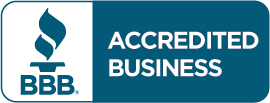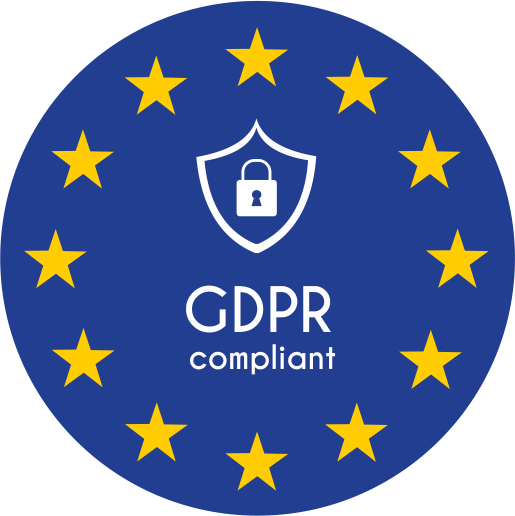by Charles Oropallo | May 29, 2019 | Internet, The CW Corner, Website Development, Website Updates, WordPress
When exploring who to have build your web presence or do your SEO (Search Engine Optimization), look to see that the web company you’re considering is an accredited member in good standing with the BBB (Better Business Bureau). The BBB does a lot of your homework for you. It actually checks out businesses for things like the fact that they really are in business and what the company’s website states.
This can be very important: make sure the company really is accredited by checking for them on the BBB website. There are many unscrupulous companies out there that place a BBB logo (with is a copyright infringement) on their site and have never even applied for BBB accreditation.
Companies must apply to and pay a fee to pass accreditation member of the BBB. Once again, these are all factors that point to the integrity of the company – it’s reliability – its dependability. You want a company that is going to help you and that thinks about its web clients – so the web company’s BBB accreditation is very important.










by Charles Oropallo | May 22, 2019 | Internet, The CW Corner, Website Development, Website Updates, WordPress
Reliable web development companies often maintain a committed presence in local networking groups. This keeps them in touch with those in their communities. It also makes the web company more accessible to those needing services. Developers usually give great service to those they see face to face weekly.
There are many networking groups out there. I don’t consider chambers of commerce networking groups. I say that for a few reasons. First is that there is no commitment to go to the meetings. Many join chambers and never attend meetings. One can join just about anywhere without committing to attend. Some belong to many chambers with no commitment to attend. That being said, it doesn’t hurt to belong to a local chamber and actually be involved.
Web development companies belonging to BNI (Business Networkers International) are ahead of the game. In order to participate in BNI the company’s representative must commit to a minimum one year and agree to show up weekly. Relationships are built among BNI members. This encourages referrals passed among members.
Bear in mind the web company should be able to pass all the items on our checklist (click to see the list again in a new window). That will be the most homework you can do to ensure the best probability of a great outcome with your website development.










by Charles Oropallo | Apr 17, 2019 | Internet, SEO, The CW Corner, Website Development, Website Updates, WordPress
The Small Business Association said in March 2019 roughly 30% of businesses failed during their first two years of opening. At the five year mark about 50% failed. At ten years around 70% had failed.
Remember this is ALL businesses – not just web businesses. I’ve seen many go under in the years since 1998 when I started in this business. Usually that news comes from our new web clients – who don’t even know what happened to their past developers – they just became unreachable or unresponsive.
Obviously there is no sure thing – no guarantee – that any business is always going to be there. That being said, there are many things that measure the likelihood of success. Look at factors like five to nine employees versus few or none. Look at employee longevity. Look at how they get their business – through referrals versus constant advertising. Look at whether they have a handful of web clients versus many.
Don’t risk having someone handle your web presence who won’t be there for the duration. Common sense dictates that a company that’s been around over ten years with a team that does most of its business through referrals for many, many clients is going to be way more reliable for you in the long term.










by Charles Oropallo | Apr 10, 2019 | Do-It-Yourself, Internet, The CW Corner, Website Development, Website Updates, WordPress
Our exposure to thousands of web clients has shown us many folks who’ve been exposed to scam artists, fly by nights, and outright crooks over the years. We’ve had clients that had paid money down to previous developers with no work done whatsoever.
Luckily, most legitimate reliable web development businesses have ethics. Part of building confidence in one’s client base is doing what is necessary to be a legitimate business. Fly-by-nights don’t bother with registering their business or any of the other numerous details of doing business that being a legitimate business entails.
It’s very simple to check to see if a business is legitimate – i.e., registered. Here are links to websites where one can check out businesses in several states in and around New England: NH MA ME VT
Doing a little research like this can save you a ton of headaches later. Dealing with a business that is willing to do the initial work of operating legitimately greatly increases the odds they are going to be reliable and honest in their dealings with you.
While there’s never a total guarantee, coupling this with other items in our checklist helps narrow the field to give you the best odds of developing a good business relationship.










by Charles Oropallo | Apr 3, 2019 | Do-It-Yourself, Domains, Internet, Security, SEO, The CW Corner, Website Development, Website Updates, WordPress
This is a question that, amazingly enough, not everyone thinks to ask. We have had a number of people who received poor service from their web services providers come to us. Imagine their surprise when they discover that they do not own their website!
Our philosophy is very simple – anything you’ve paid in full for – meaning there is no open balance on your account – is yours. Period. We really have no reason to want your website. We just want to be paid for work done, your domains and services rendered.
Unfortunately there are many unscrupulous people in the web business. They use their ownership of your content as a method to hold you hostage – forcing you to keep paying them. It’s an unfortunate reality on the web. We have never operated that way.
Just about as bad are the large companies that you can build your website at quickly ans easily. However, there is no way to move that website from them. Your site operates ONLY on their proprietary servers so can’t be moved elsewhere. Folks usually discover that after realizing there are insufficient options for website expansion or customization. Then they’ve lost all the time and energy put into a website they don’t own.
We’ll be glad to tell you if you’ve been trapped like this.










by Charles Oropallo | Mar 27, 2019 | Do-It-Yourself, Domains, Email, Internet, Introduction, Monadnock Shopper News, Passwords, Security, SEO, Shopper News, The CW Corner, Website Development, Website Updates, WordPress
It’s increasingly difficult sorting the good companies from the bad ones on the Internet. There are still ways to find the best, reliable web development companies. We’ve compiled this recommended checklist as a starting point. The order these are in isn’t necessarily important since ALL the points are very important!
Check to see if your web development company:
□ will ensure that YOU own your website when it’s paid for
□ is legitimately registered to do business within its State: NH MA ME VT
□ has been in business for at least 10 years
□ has several or more people
□ carries Workers Compensation on its employees
□ carries liability insurance
□ maintains a committed presence in networking groups
□ is accredited and has a good rating with the Better Business Bureau (https://BBB.org)
□ understands your community and reciprocates by referring business to you
□ has a phone contact where one can at least leave messages
□ has an email contact where one can send information
□ provides automatic site updates at no additional ongoing charge
□ backs up websites every night for at least a month
□ provides website encryption (SSL) at no additional ongoing charge
□ does not require hosting or domain contracts
□ does not overcharge you by selling you inflated monthly maintenance plans
□ provides partial hour web work billing (9 minutes work charged 9/60 of hourly rate)
□ can respond to most maintenance requests in 3-4 days
□ has general familiarity with trademark and copyright issues
□ is proficient with WordPress through experience and training
Over upcoming weeks check here for details about each. Contact us with any questions, we exist to serve you!













 European Union General Data Protection Regulation Compliant
European Union General Data Protection Regulation Compliant